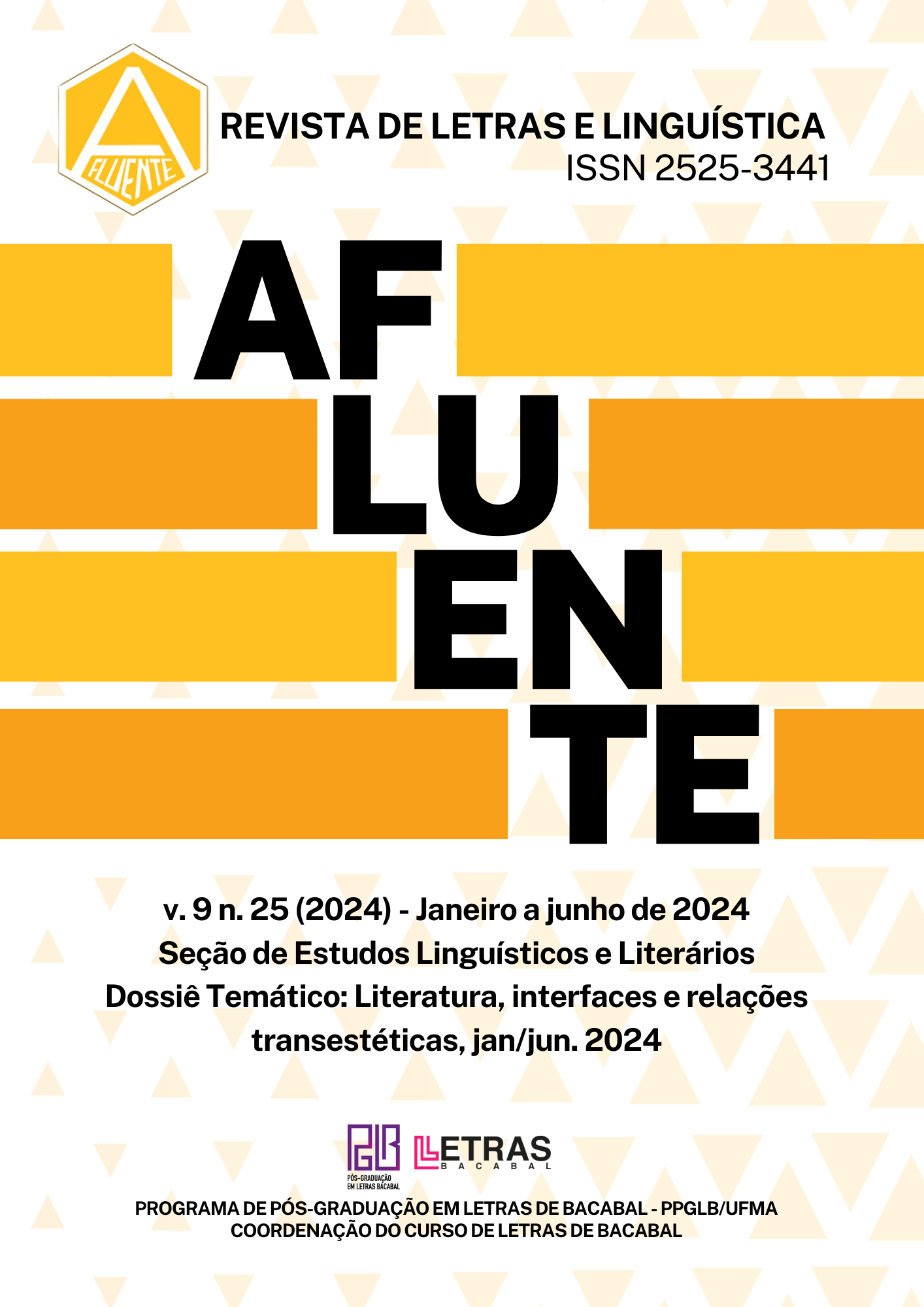Deep Waters: Shared Aspects Among The Literatures of French Guiana, Suriname, and Brazil
DOI:
https://doi.org/10.18764/2525-3441v9n25.2024.06Keywords:
Guyanese literature, Surinamese literature, Amapá literature, Poetics of Relation, Decolonial feminismAbstract
This article aims to reflect on the similarities in contemporary literary production in the far north of South America, specifically in French Guiana, Suriname, and the state of Amapá in Brazil. The reflection is based on the understanding that the persistence of the image of slave ships in literary works reveals the connection between the region, its historical, cultural, and literary similarities, regardless of the authors' awareness of this issue or their desire to promote a transnational or cross-border dialogue. To illustrate this discussion, il will be analyzed texts by three writers, the short story “Bois d’ébène: des racines de l’oubli à la résistance éternelle” (2010) by the Guianese Marie-Goerge Thebia, the novel Tutuba: The Girl from the Slaveship Leusden (2013) by the Surinamese Cynthia McLeod, and the poems “África amiga” (2021) and “A saga dos negros” (2018) by the poet from Amapá, Negra Áurea. The poetics of Relation, as formulated by Glissant (2021), and the Decolonial feminism by Vergès (2020) will serve as the theoretical basis for the proposed analysis.
Downloads
References
ALVES, Castro. O navio negreiro e vozes d’África. Brasília: Biblioteca Digital da Câmara dos Deputados, 2013.
ÁUREA, Negra. Perfil na plataforma Recanto das Letras. 2024. Disponível em: https://www.recantodasletras.com.br/autor_textos.php?pag=16&id=197668. Acesso em: 02 mar. 2024.
ÁUREA, Negra. Poema “África amiga”. Blog Recanto das Letras. 2021. Reeditado em 2022. Disponível em: https://www.recantodasletras.com.br/poesias/7338178. Acesso em: 02 mar. 2024.
ÁUREA, Negra. Poema “Á saga dos negros”. Blog Recanto das Letras. 2018. Reeditado em 2019.Disponível em: https://www.recantodasletras.com.br/poesias/6257493. Acesso em: 02 mar. 2024.
BALAI, Leo. Slave Ship Leusden: a Story of Mutiny, Shipwreck and Murder. 2. ed. Sarawak: UTS Publishing, 2014. Edição do Kindle
DAVIS, Angela. Mulheres, raça e classe. Trad. Heci Regina Candiani. São Paulo: Boitempo, 2016.
FEDERICI, Silvia. Calibã e a bruxa: mulheres, corpo e acumulação primitiva. Trad. Coletivo Sycorax. São Paulo: Elefante, 2017.
GENETTE, Gérard. O discurso da narrativa. Trad. Fernanda Cabral Martins. Lisboa: Vega, 1995.
GLISSANT, Édouard. Poética da relação: poética III. Trad. Marcela Vieira e Eduardo Jorge de Oliveira. Rio de Janeiro: Bazar do Tempo, 2021.
MCLEOD, Cynthia. Tutuba: The girl from the slaveship Leusden. Trad. Gerald R. Mettam. Paramaribo: Uitgeverij Conserve, 2013.
PAES, Mary. Escritoras lançam livros que abordam temática negra e a valorização da mulher. Jornal dos Municípios: AP online. Macapá, 28 jan. 2023. Disponível em: https://www.jornaldosmunicipiosap.com.br/coluna/escritoras-lancam-livros-que-abordam-tematica-negra-e-a-valorizacao-da-mulher. Acesso em: 02 mar. 2024.
PIEDADE, Vilma. Dororidade. São Paulo: Editora Nós, 2017.
POTIGUARA, Eliane. Metade cara, metade máscara. Lorena: DM Projetos Especiais, 2018.
SENIOR, Olive. Brief lives. In: SENIOR, Olive. Gardening in the tropics: poem. Toronto : McClelland & Stwart, 1994. p.85.
THEBIA, Marie-George. Bois d’ebène: des racines de l’oubli à la résistance éternelle. In. : THEBIA, Marie-George. Bois d’ebène et autres nouvelles de Guyane. Paris : L’Harmattan, 2010.
VAZ, Lívia Sant'Anna. Calunga Grande e tragédias no mar: ou de como somos (des)iguais até na morte. Migalhas. Ribeirão Preto, 26 jun. 2023. Coluna Olhares Interseccionais. Disponível em: https://www.migalhas.com.br/coluna/olhares-interseccionais/388826/calunga-grande-e-tragedias-no-mar. Acesso em: 03 mar. 2024.
VERGÈS, Françoise. Um feminismo decolonial. Trad. Jamille Pinheiro e Raquel Camargo. São Paulo: UBU Editora, 2020.
Downloads
Published
How to Cite
Issue
Section
License
Copyright (c) 2024 Afluente: Revista de Letras e Linguística

This work is licensed under a Creative Commons Attribution 4.0 International License.
Direitos autorais Afluente: Revista Eletrônica de Letras e Linguística
Este trabalho está licenciado com uma Licença Creative Commons - Atribuição 4.0 Internacional.















